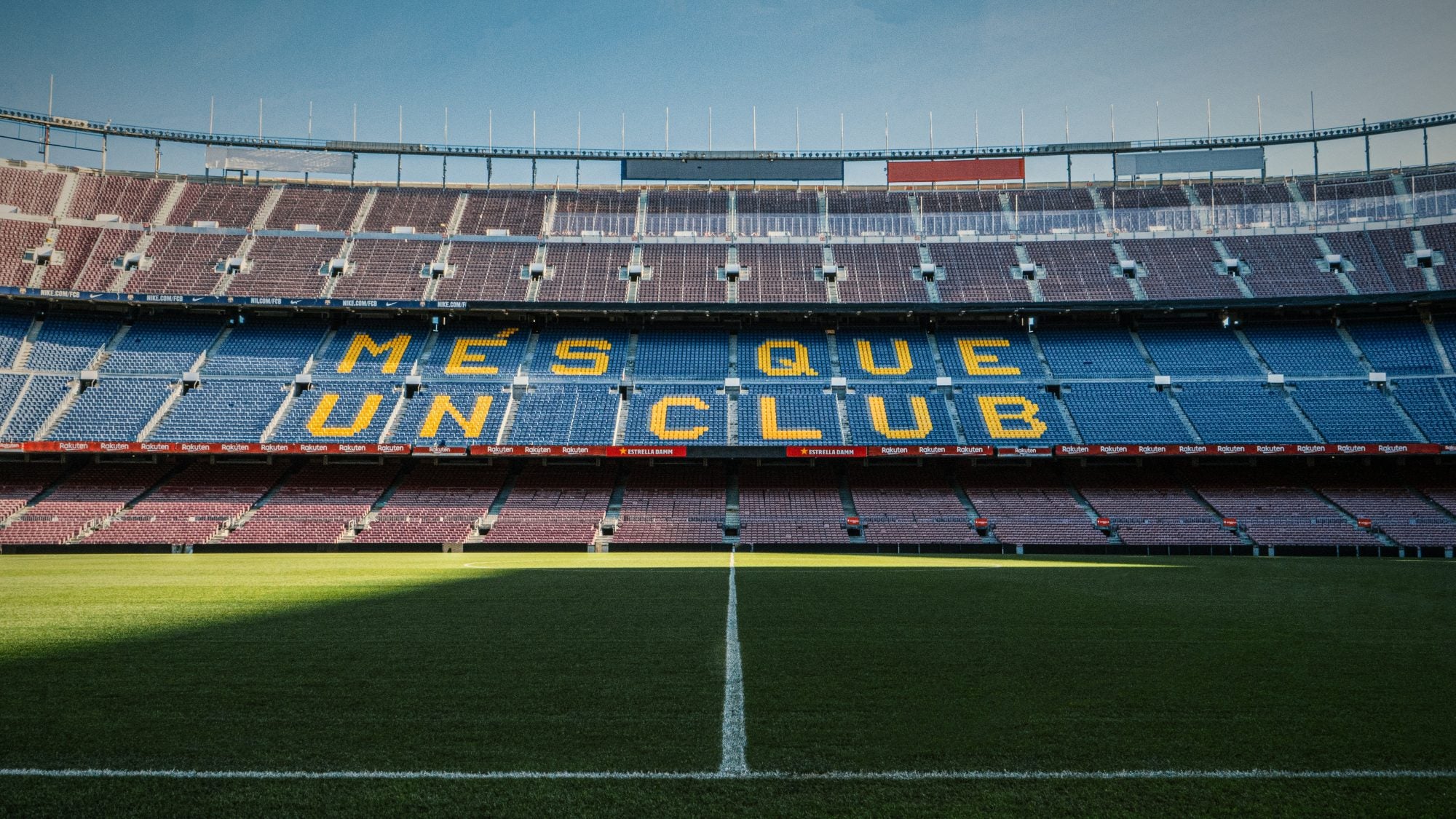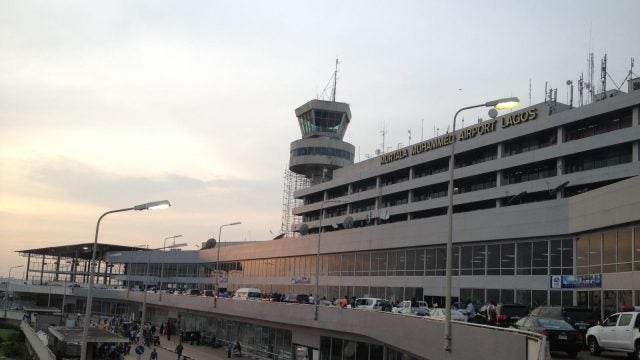
Title: Politics, Ideology, and Power in Spanish Football: FC Barcelona and the Tensions Between the Center-Periphery Cleavage
Football is one of the mirrors through which Spanish political polarization can be better understood. Despite the best efforts of political parties based in Madrid to construct a narrative that separates sports and politics, the tension between the center (Madrid) and the periphery (especially the Basques and Catalans) remains a long-standing dynamic. This article takes the multidisciplinary analysis from FC Barcelona: History, Politics and Identity as a starting point, arguing that, on a national level, political polarization in Spain can be understood through the “Clásico” rivalry between Real Madrid and FC Barcelona, while on a global scale, both football clubs have the same economic interests in promoting their brands.
Introduction
“El Clásico,” the rivalry between football clubs FC Barcelona and Real Madrid, exemplifies the political and cultural tensions between the center and periphery in Spain and has generated emotionally charged displays throughout history.
For example, Ramon Mendoza, president of Real Madrid (1985-1995), jumped with the Ultras Sur—a right-wing Real Madrid fans’ group—while shouting “¡Polaco el que no vote!” (the Polish one who does not vote!). Polaco was a common insult in the Francoist military barracks against Catalan soldiers, who spoke a different language (Catalan) from the Francoist soldiers. The chant “¡Puta Barça, Puta Catalunya!” (Whore Barça, Whore Catalonia!) can still be heard at Real Madrid’s home stadium, Santiago Bernabéu, against the shouts of “in, inde, independència!” (independence!) at the 17:14 minute mark in FC Barcelona’s home stadium Spotify Camp Nou—17:14 symbolizes the year 1714, when the Succession War in Spain ended with the victory of the Bourbonic troops.
These and other examples illustrate how political and cultural tensions between FC Barcelona and Real Madrid—the two Spanish football super powerhouses with a brand value of EUR1.5 billion and EUR1.7 billion, respectively—continue in the contemporary age. The book FC Barcelona: History, Politics and Identity is the first academic monography that analyzes the singularities of a club that its motto is “more than a club”, above all due to its role as a kind of resistance to centralization from Madrid.
FC Barcelona: the “disarmed symbolic army” of Catalonia
Since the beginning of the 20th century, FC Barcelona has been linked with the ideals of Catalonia’s political parties that, at different moments of Spanish history, have favored greater Catalan independence.
FC Barcelona was founded in 1899 by Hans Gamper, a Swiss businessman and football fan that came to Barcelona for professional reasons. In 1908, Gamper chose to associate the club with the values of political Catalanism in Barcelona as a means to bolster the club’s popularity and save it from a deep financial crisis. Those club’s values were: “Catalanism, democracy, universalism, and a multi-sport club.” This link between FC Barcelona and political Catalanism is well-documented. In 1918, sportswriter Daniel Carbó anointed FC Barcelona as “the club of Catalonia” for having publicly supported demands for the first Statute of Autonomy (home rule) in the Catalan region, during the period of the Commonwealth of Catalonia (1914-1925).
As sports historian Professor Carles Santacana contends, tensions between Real Madrid and FC Barcelona heightened under the Francoist Spanish nationalist dictatorship (1939-1975). Under Francoism, FC Barcelona had a “martyr president” in Josep Sunyol Garriga (1898-1936). Sunyol was executed by the Francoist army at the onset of the Civil War (1936-1939) for serving as a deputy of the Esquerra Republicana (Republican Left of Catalonia) political party and for his Catalanist ideology. In fact, under the Francoist dictatorship, FC Barcelona represented a “disarmed symbolic army” for Catalonia, as journalist and writer Manolo Vázquez Montalbán argued. Historian and writer Jordi Osúa states that this military metaphor explains that “many Catalans became members of the club to be able to openly show their disagreement with the Francoist regime by shouting at the FC Barcelona stadium: a demonstration less risky than clandestine struggle and more desirable for Francoism than street protests.” In other words, for many fans, support for FC Barcelona was the safest way to express political resistance to Franco’s dictatorship.
At the same time, Francisco Franco’s regime appointed Real Madrid as its international sports ambassador after the club’s success in the European Champion Clubs’ Cup in 1955. FC Barcelona, then, as a representative of a stateless nation, with its own Catalan language and culture, has clashed with the transformation of Real Madrid into a Spanish nationalist icon and the sports ambassador for Spain itself. Indeed, the Spanish government continued to legitimize Real Madrid after the Francoist regime ended in 1975, and even now, conservative politicians uphold Real Madrid as a Spanish nationalist ideal.
FC Barcelona in contemporary Spain: sport, power, and ideology
These historical factors contextualize why FC Barcelona felt morally compelled to take a stance during the political tensions that Catalonia experienced between 2010 and 2017. These tensions began in 2010 when the Spanish Constitutional Court reinterpreted the 2006 Catalan Home Rule to limit Catalan autonomy, which was previously approved by a public referendum in the region. As a consequence, Barcelona saw massive protests in 2010 for national recognition of the Catalan region; the slogan of the demonstration was “We are a nation, we decide.” These political tensions ended with the Catalan self-determination referendum on October 1, 2017, and the unilateral declaration of independence in the Parliament of Catalonia on October 27. The Spanish government subsequently intervened to dissolve the regional Parliament and introduce direct rule.
The call for the 2017 referendum, declared unconstitutional by the Spanish Constitutional Court, led to violent disturbances at closed polling stations between supporters of independence and state security forces. On that same day, FC Barcelona was set to play UD Las Palmas at Camp Nou. FC Barcelona fans urged the team not to play the match in protest of “police charges” against independentist voters. Despite fans’ protests, FC Barcelona president Josep Maria Bartomeu opted to play the game behind closed doors, avoiding a loss of six points and a subsequent sanction on the club. At the same time, UD Las Palmas wore a small Spanish flag on their jerseys to recognize the Constitutional order in Spain. This episode sparked a debate within FC Barcelona between those with a strong connection to the local Catalan identity—deeply influenced by Catalan nationalism—and the commercial interests of players and sponsors.
If football clubs in Europe can be considered organizations rooted in their communities, it is impossible for them to ignore conflicts plaguing their societies of origin. At the same time, new commercial dynamics have come into conflict with entrenched community identities. Professor David L. Andrews (2019) writes that the sports industry has grown to follow “corporatization, commercialization, spectacularization, and celebritization,” emphasizing how sport has been commodified and sport organizations transformed into new entertainment multinationals.
Stadiums such as Camp Nou or Santiago Bernabéu are prime examples of this phenomenon, yet they have also retained their regional identities. While both clubs have rebuilt their stadiums into what professor Michael T. Friedman calls “Mallparks”—facilities designed following “the principles of theme park and shopping mall”—the Catalan and the Catalan independentist flags are still flown in support of FC Barcelona, while the official Spanish flag is still used to support Real Madrid in their venues.
FC Barcelona and Real Madrid: local tensions, common global interests
As Francoism sought to homogenize Spain, FC Barcelona became a “disarmed symbolic army” for Catalonia, serving as an ambassador for its city (Barcelona) and region (Catalonia) throughout the process of Spain’s democratization. The club is essential in the branding strategy of both places when it comes to attracting tourists and investment: the impact of FC Barcelona on the city’s economy represents 1.46 percent of Barcelona’s GDP. The challenge today lies more in the club’s relationship with Catalonia’s politics than with Barcelona’s economy.
The power of FC Barcelona as Catalonia’s cultural and sports institution means that political entities have sought to have a voice within the club itself. In the recent past, the presidency of Josep Lluís Núñez (1978-2000) exemplifies the tension between Núñez, who boasted of managing the club in a non-political manner, and Catalan nationalist interests. Josep Lluís Núñez was elected with a focus on promoting sports and economic growth, intentionally avoiding connections to social and political issues. This deliberate shift away from the “More than a club” motto created tensions with Convergència i Unió (CiU), the Catalan nationalist party in power during his tenure. Furthermore, the collective Catalanist sentiment of Barça fans often challenged Núñez’s efforts to remain apolitical.
However, as my joint research in Soccer & Society concluded, from a corporate perspective, the historical rivalry between FC Barcelona and Real Madrid has been diluted in the global market. Both clubs have adapted their historical values to a new context of commodification and globalization. The current corporate values of FC Barcelona are “effort, respect, teamwork, humility and ambition.” Real Madrid’s contemporary values do not differ much from FC Barcelona’s: excellence, winning spirit, universality, solidarity and humility.
Because of the size of the global market, local political tensions between FC Barcelona and Real Madrid lose importance, as both clubs must compete for global audiences and commercial partnerships that do not have any political identification along the Spanish “center-periphery” cleavage. In this global context, I argue that both clubs should cooperate to defend their economic interests in front of FIFA and UEFA, help Spanish LaLiga implement its prevention policies for mitigating violent relationships among local fan groups, and promote outreach to global audiences essential for their future business ventures.
By emphasizing their similar contemporary values and interests, FC Barcelona and Real Madrid can work together in the global sports market in a way that economically benefits both clubs and benefits the international positioning of their home cities, which host “El Clásico” as a yearly media-sport event. Locally, both clubs must uphold their social responsibility to be major players in the promotion of social and community cohesion due to the emotional and symbolic dimension of sport. This is significant in a context where far right and ultranationalist political parties are boosting their popularity in Spain. Most recently, the Spanish ultranationalist party Vox has grown from 0.23 percent of electoral support in 2015 to 12.39 percent in 2023, while the Catalan ultranationalist Aliança Catalana won 2 seats in the Catalan parliament in 2024 for the first time. However, some of the main LaLiga and Spanish national team football stars have migrant origins, such as FC Barcelona Catalan striker Lamine Yamal.
While furthering their commercial interests, both clubs must still maintain their local distinctiveness and remain spaces where fans can celebrate their culture, community, and values. The territorial roots of the clubs and passionate identities of their fans make it unlikely that local Spanish authorities will interfere in the clubs’ management, leaving it up to the clubs themselves to act as political mediators. Tradition and local roots of European football clubs are crucial to their identities. Preserving that tradition and cultural distinctiveness while mediating historical tensions to each club’s shared commercial benefit is necessary to strengthen both clubs’ local and global hegemony.
. . .
Dr. Xavier Ginesta is an Associate Professor of Media and Sports Marketing at the University of Vic-Central University of Catalonia. His main research fields are Communication and Sport, Sport Place Branding and Geopolitics. He is a board member of the International Association for Communication and Sport (IACS), a founding member of the Sport and Politics International Research Group (SPRING), and co-editor and author of the book FC Barcelona: History, Politics and Identity (Routledge, 2024).
Image Credit: Tim Roosjen, Unsplash Content License, via Unsplash.
Recommended Articles

Africa accounts for approximately two percent of global air travel. Given the continent’s vast size and large distances between major trade hubs, enhancing intra-African air connectivity will be…

An estimated 7.9 million Venezuelans migrated abroad for the long term under President Nicolás Maduro’s rule as Venezuela’s political, economic, and social crises have deepened. Alongside rising Venezuelan migration, migrants…

Amid stalled U.S. federal climate engagement and intensifying transatlantic climate risks, subnational diplomacy has emerged as a resilient avenue for cooperation. This article proposes a Transatlantic Subnational Resilience Framework (TSRF)…